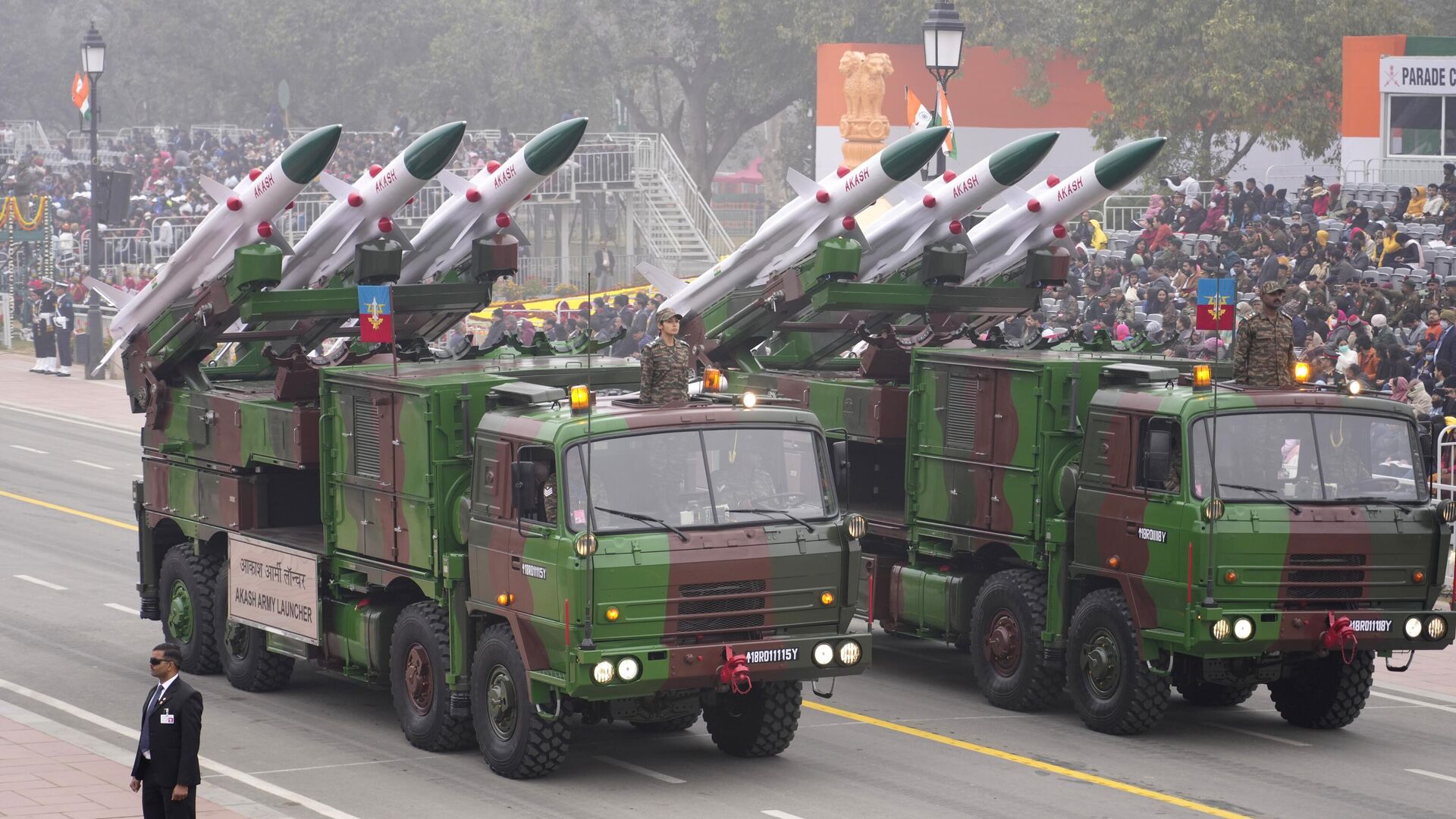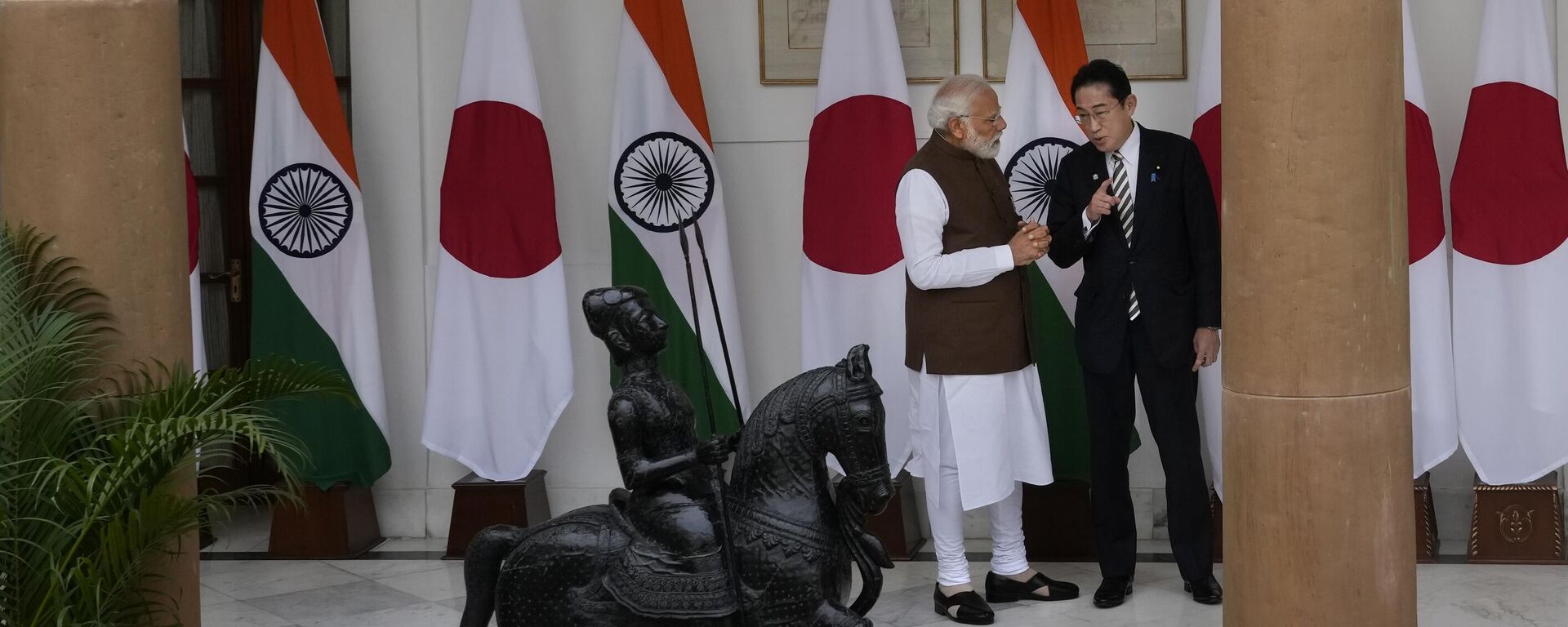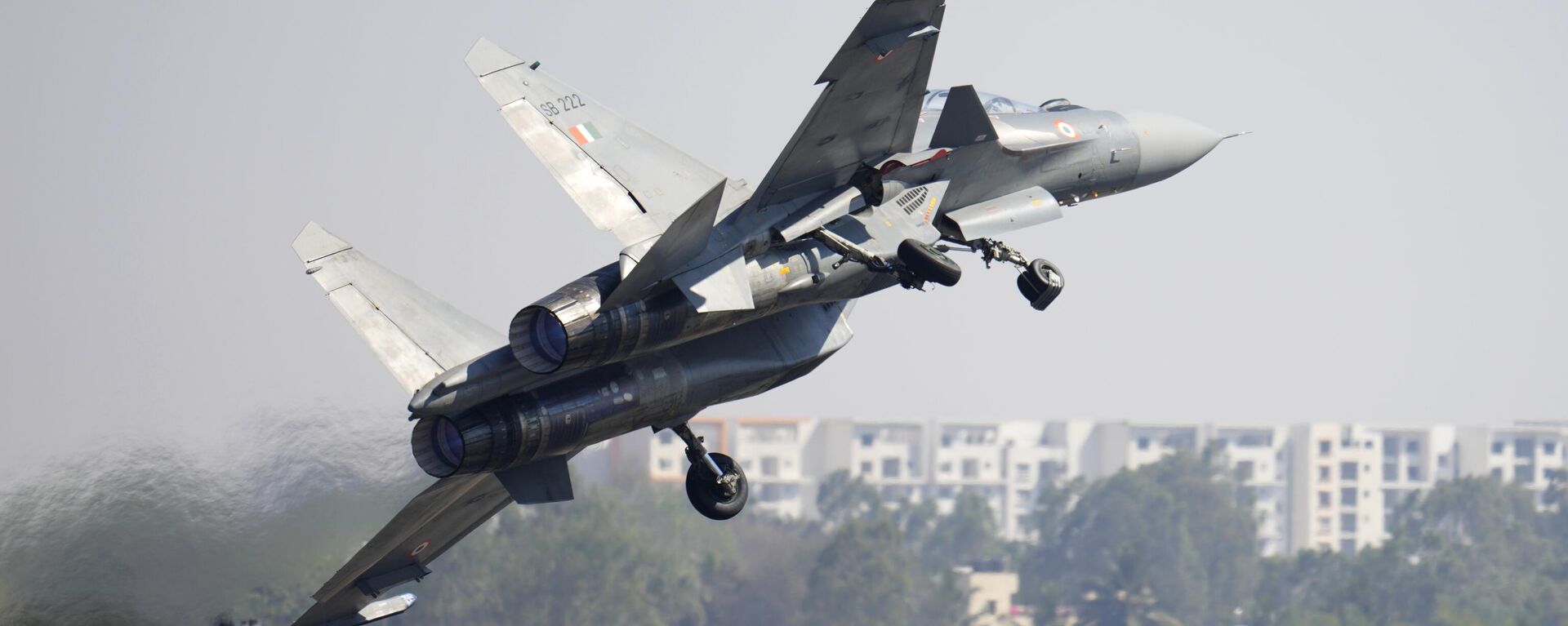https://sputniknews.in/20230429/western-sanctions-global-demand-for-arms-is-affecting-operational-preparedness-says-indias-cds-1742185.html
Western Sanctions, Global Demand for Arms Is Affecting Operational Preparedness, Says India’s CDS
Western Sanctions, Global Demand for Arms Is Affecting Operational Preparedness, Says India’s CDS
Sputnik India
The rising demand for arms across the world and “black swan” events such as western sanctions have led to disruptions in global defense supply chains, thus affecting “operational preparedness” of the armed forces,
2023-04-29T18:36+0530
2023-04-29T18:36+0530
2023-04-29T18:36+0530
defenсe news
india
defense export
defense budget
japan
china
germany
ukraine
western sanctions
https://cdn1.img.sputniknews.in/img/07e7/01/1a/651460_0:61:3073:1789_1920x0_80_0_0_b5cbc4aef6957bf8c08bb3f7157875f8.jpg
The rising demand for arms around the world, and “black swan” events such as western sanctions, have disrupted global defence supply chains, thus affecting the “operational preparedness” of the armed forces, India’s Chief of Defence Staff (CDS) General Anil Chauhan told a conference in New Delhi on Saturday.Chauhan noted that Russia, China and Iran have become closer while Western nations have mobilised around Ukraine.“New alignments, new alliances, new linkages and new partnerships are on the anvil, which gives rise to a sense of uncertainty among nations, among global and regional institutions and even among economic unions and alliances,” Chauhan said.‘Anxiety’ Among Global Security ProvidersChauhan warned that global uncertainty was creating a sense of “anxiety” among the global security providers.He said that Japan’s National Security Strategy (NSS) requires “counter-strike” capabilities for the Japanese forces and that Tokyo has vowed to increase its defence budget to 2 percent of GDP by 2027.Chauhan noted that even South Korea has pledged an annual average increase of 6.8 percent in its defence budget for the next five years. He said that the United Kingdom has also been prompted by the present geopolitical events to launch an Integrated Review Refresh (IRR) in 2023.Further, he noted that Germany committed itself to increasing its defence budget to 2 percent of GDP.The Indian General also highlighted that China’s defence budget was 7.2 percent this year than it was last year.“Furthermore, pandemics and Western sanctions have exposed vulnerabilities in supply chains, thereby affecting the operational preparedness of the armed forces,” he added.The Situation Of India's Present Arms Imports ‘Not Sustainable’The Indian General said that New Delhi’s present situation, where it stands as the world’s biggest importer of arms and weapons systems, isn’t “sustainable in the emerging geopolitical environment”Chauhan said that the ongoing push to develop an “indigenous defence ecosystem” under the government-backed 'Made in India’ policy is the best bet for New Delhi.Chauhan said that the government has taken a series of “policy initiatives” to encourage domestic defence manufacturing, including simplifying the industrial regulations and allowing Foreign Direct Investment of up to 74 percent in the manufacture of certain defence items.“Today, our defence industries are already making a wide variety of military hardware to meet the requirements of the forces, as well as for exports,” he said.
https://sputniknews.in/20230320/india-indispensable-to-japans-new-indo-pacific-policy-fumio-kishida-1233121.html
https://sputniknews.in/20230428/new-delhi-wants-moscow-to-contribute-to-boosting-make-in-india-defence-sector--1739576.html
india
japan
china
germany
ukraine
Sputnik India
feedback.hindi@sputniknews.com
+74956456601
MIA „Rossiya Segodnya“
2023
Dhairya Maheshwari
https://cdn1.img.sputniknews.in/img/07e6/0c/13/138962_0:0:641:640_100x100_80_0_0_2cb44360dbcdf6d84bf4b299cd045917.jpg
Dhairya Maheshwari
https://cdn1.img.sputniknews.in/img/07e6/0c/13/138962_0:0:641:640_100x100_80_0_0_2cb44360dbcdf6d84bf4b299cd045917.jpg
News
en_IN
Sputnik India
feedback.hindi@sputniknews.com
+74956456601
MIA „Rossiya Segodnya“
Sputnik India
feedback.hindi@sputniknews.com
+74956456601
MIA „Rossiya Segodnya“
Dhairya Maheshwari
https://cdn1.img.sputniknews.in/img/07e6/0c/13/138962_0:0:641:640_100x100_80_0_0_2cb44360dbcdf6d84bf4b299cd045917.jpg
defense budget of india, india defense news, india defense budget, india defense exports, india defense imports, make in india, western sanctions on russia, western sanctions
defense budget of india, india defense news, india defense budget, india defense exports, india defense imports, make in india, western sanctions on russia, western sanctions
Western Sanctions, Global Demand for Arms Is Affecting Operational Preparedness, Says India’s CDS
India's top General said that although India was “uniquely” placed in the emerging world order because of its close ties with both Russia and the West, the emerging geopolitics nevertheless present it with a major challenge in sourcing weapons and maintaining operational preparedness.
The rising demand for arms around the world, and “black swan” events such as western sanctions, have disrupted global defence supply chains, thus affecting the “operational preparedness” of the armed forces, India’s Chief of Defence Staff (CDS) General Anil Chauhan told a conference in New Delhi on Saturday.
India’s top General said that a “new world order” is emerging and the present geopolitical environment is in a “state of flux”.
Chauhan noted that Russia, China and Iran have become closer while Western nations have mobilised around Ukraine.
“New alignments, new alliances, new linkages and new partnerships are on the anvil, which gives rise to a sense of uncertainty among nations, among global and regional institutions and even among economic unions and alliances,” Chauhan said.
‘Anxiety’ Among Global Security Providers
Chauhan warned that global uncertainty was creating a sense of “anxiety” among the global security providers.
“A quick regional scan of Europe and Asia would indicate that nations are bracing themselves for the looming prospects of uncertainty, instability and a major change in the global order. This is reflected in the change of national security strategies of many nations, besides the increasing defence budgets of most of the countries,” the Indian General said.
He said that Japan’s National Security Strategy (NSS) requires “counter-strike” capabilities for the Japanese forces and that Tokyo has vowed to increase its defence budget to 2 percent of GDP by 2027.
Chauhan noted that even South Korea has pledged an annual average increase of 6.8 percent in its defence budget for the next five years. He said that the United Kingdom has also been prompted by the present geopolitical events to launch an Integrated Review Refresh (IRR) in 2023.
Further, he noted that Germany committed itself to increasing its defence budget to 2 percent of GDP.
The Indian General also highlighted that China’s defence budget was 7.2 percent this year than it was last year.
“I am not sure if the global defence industry is geared to meet the surge in demand which I have spoken about,” Chauhan said warning that there remains a “huge possibility of disruptions” in the global supply chain because of the surge in demand.
“Furthermore, pandemics and Western sanctions have exposed vulnerabilities in supply chains, thereby affecting the operational preparedness of the armed forces,” he added.
The Situation Of India's Present Arms Imports ‘Not Sustainable’
The Indian General said that New Delhi’s present situation, where it stands as the world’s biggest importer of arms and weapons systems, isn’t “sustainable in the emerging geopolitical environment”
“India has been a major arms importer and the operational preparedness of our armed forces has been dependent on foreign Overseas Equipment Manufacturers (OEMs) and military hardware,” he noted.
Chauhan said that the ongoing push to develop an “indigenous defence ecosystem” under the government-backed 'Made in India’ policy is the best bet for New Delhi.
He said that by meeting its own defence needs, New Delhi would not only be able to maintain its “strategic autonomy” but also “shoulder” new responsibilities in the form of opportunities for greater demand for weapons globally.
Chauhan said that the government has taken a series of “policy initiatives” to encourage domestic defence manufacturing, including simplifying the industrial regulations and allowing Foreign Direct Investment of up to 74 percent in the manufacture of certain defence items.
“Today, our defence industries are already making a wide variety of military hardware to meet the requirements of the forces, as well as for exports,” he said.




